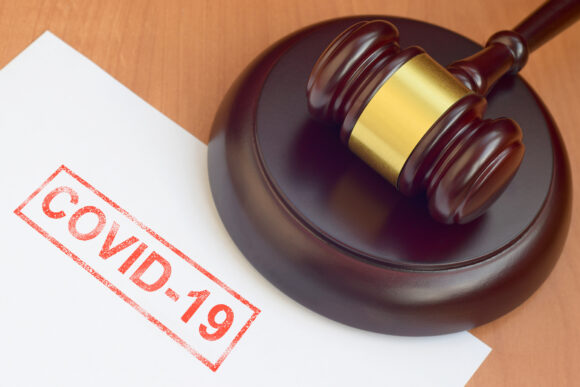A Texas nonprofit health system who purchased a specialized commercial property insurance policy is not covered for business interruption losses caused by COVID-19, a 5th Circuit Court of Appeals panel ruled, relying on existing precedent that COVID-19 does not physically harm property.
Baylor Scott & White Holdings (BSW), the largest nonprofit health system in Texas, sued insurer Factory Mutual Insurance Co. in February 2021 for denying a claim seeking business interruption losses as a result of COVID-19 totaling over $192 million. BSW said its claim was predicated on physical loss and/or physical damage to property caused by, among other things, the presence of COVID-19″ at its facilities.
The policy BSW purchased from Factory Mutual covered two general types of claims – property damage and time element claims. The policy excludes coverage for contamination, and any cost due to contamination including the inability to use or occupy property or any cost of making property safe or suitable for use or occupancy.
The policy contains additional coverages, including the Communicable Disease Response Extension and the Interruption by Communicable Disease Extension. Under the extensions, the policy covers up to $5 million for cleanup, removal and disposal of the presence of communicable diseases, and costs for public relations services or reputation management resulting from the presence of communicable diseases. Both parties agree that the $5 million limit has been paid out in full for the implicated policy year.
In March 2023 a district court granted Factory Mutual’s motion to dismiss BSW’s lawsuit seeking business interruption losses. The court found that given existing circuit precedent, BSW had not plausibly alleged “physical loss or damage” under the Policy, and the Contamination Exclusion and Loss of Use Exclusion barred BSW’s recovery under the Policy. BSW appealed the district court’s order.
The 5th Circuit panel affirmed the district court’s ruling in a 2-1 decision, finding that in context of previous COVID-19 commercial-insurance coverage disputes, COVID-19 does not physically damage property within the plain meaning of ‘physical.’
BSW argues that its policy language is unique because it covers ‘physical loss or damage’ caused by communicable disease,” making the coverage broader than a typical policy. BSW further contends that its complaint was wrongly dismissed because no other case previously “included specific factual allegations of demonstratable, measurable, and tangible alteration of property” caused by COVID-19.
The panel acknowledged the “great scientific detail” BSW went through in explaining how COVID-19 physically altered the surfaces of its property but did not budge.
“The alleged uniqueness of the Policy’s language does not change that we have determined, as a matter of law, COVID-19 does not cause physical loss or damage to property,” Judge Irma Carrillo Ramirez wrote in the majority opinion.
Judge Jennifer Walker Elrod dissented, however, arguing BSW adequately showed that COVID-19 created a tangible alteration to or depravation of its property.
BSW explained how the spike proteins on the outside of the COVID-19 virus attach to metallic surfaces and bond with oxygen-containing surfaces such as wood, cotton, or glass to “physically alter the roughness of those surfaces and to make the surfaces more likely to repel water,” Elrod wrote in her dissent.
BSW cited research from peer-reviewed scientific journals in support of its argument.
Elrod wrote that the case serves as an example for why the court’s precedent that COVID-19 does not physically damage property within the plain meaning of ‘physical’ should not should not be understood as a legal rule, but rather as an “explanation of why the mine-run COVID-19 insurance policy case fails.”
This case is distinct, Elrod wrote, because BSW “pleaded tangible alterations to the property, instead of merely alleging “physical harm” in a conclusory manner.”
Was this article valuable?
Here are more articles you may enjoy.



 What Analysts Are Saying About the 2026 P/C Insurance Market
What Analysts Are Saying About the 2026 P/C Insurance Market  Insurify Starts App With ChatGPT to Allow Consumers to Shop for Insurance
Insurify Starts App With ChatGPT to Allow Consumers to Shop for Insurance  Allstate CEO Wilson Takes on Affordability Issue During Earnings Call
Allstate CEO Wilson Takes on Affordability Issue During Earnings Call  Insurance Issue Leaves Some Players Off World Baseball Classic Rosters
Insurance Issue Leaves Some Players Off World Baseball Classic Rosters 


